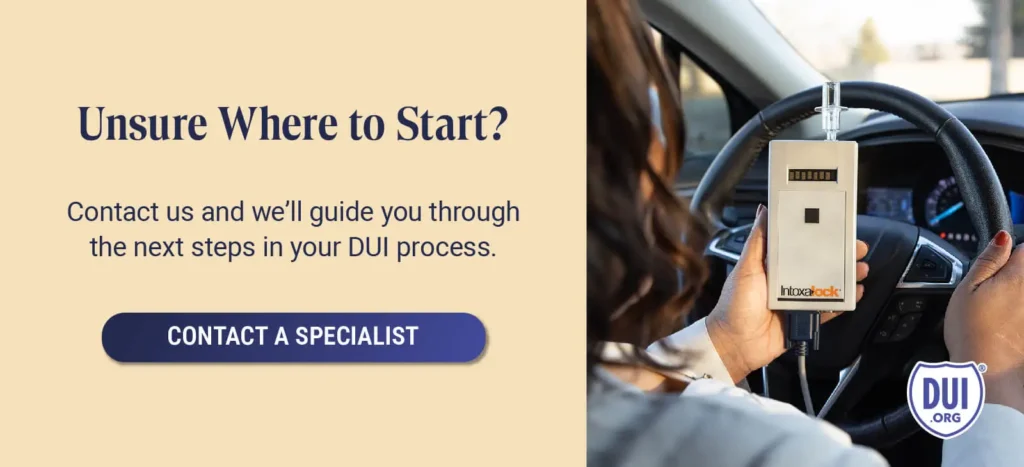
If you’ve been convicted of a DUI (driving under the influence), you may wonder how long a DUI stays on your record. Each state has specific laws, often called look-back periods, which determines how long a DUI conviction can be considered if you face future DUI charges. This period, also known as a look-back law, or washout period, varies by state, with the nationwide average being around 10 years, though some states keep DUI convictions on your record for life.
What is a Look-Back Period?
A DUI look-back period refers to the length of time a DUI conviction remains on your record and can be used to determine the severity of penalties for future offenses. If you receive another DUI within this period, your new conviction may be treated as a repeat offense, resulting in harsher penalties. Courts and DMV offices use this window to identify drivers who pose a higher risk, including those who may have an alcohol abuse issue.
Penalties for Multiple DUI Convictions During Look-Back Period
Multiple DUI convictions within a state's look-back period or washout period can lead to serious consequences, including:
- Jail time
- Longer driver’s license suspensions
- Extended use of ignition interlock devices (IID)
- Required alcohol treatment programs
- Felony charges
- Required SR-22 or FR-44 insurance certificate
- Permanent loss of driving privileges
DUI Look-Back Periods by State
Look-back periods for a DUI vary significantly from state to state. Here are a few examples of how they differ:
- Georgia: Has a 10-year look-back period. If you get a DUI within 10 years of a previous conviction, it’s treated as a second offense. However, if more than 10 years have passed, the first conviction is “washed off” your record, and the new offense is treated as a first-time DUI.
- Michigan: Implements a seven-year DUI look-back period for a second OWI and a lifetime look-back period for third and subsequent offenses.
- Alabama & North Dakota: Have DUI look-back periods that increase with each subsequent offense.
- Florida: Starts with a five-year look-back for a second DUI offense but extends to 10 years for a third offense. A fourth DUI results in a lifetime license suspension.
- Nebraska: Enforces a 15-year DUI look-back period.
- States with Lifetime DUI Look-Back Periods: Alaska, Colorado, Delaware, Indiana, Iowa, Massachusetts, New Mexico, Texas, and Vermont all maintain lifetime look-back periods for a DUI, meaning any DUI conviction stays on your record permanently.
Each state’s look-back laws are designed to hold habitual offenders accountable and prevent dangerous repeat offenders from putting others at risk on the road. You can check your state’s DUI laws to understand the specific DUI look-back period by state.

Why Do Look-Back Laws Matter?
Look-back laws for a DUI are essential in identifying repeat offenders and preventing future drunk driving incidents. By applying look-back periods or washout periods, courts and DMVs can differentiate between a driver who had a DUI 20 years ago versus someone convicted of DUI just two years ago. These look-back laws are designed to ensure that penalties reflect the driver’s risk to public safety.
States with longer or lifetime DUI look-back periods often have stricter DUI penalties to discourage recidivism. For example, states with lifetime look-back periods enforce harsher punishments, including mandatory ignition interlock device requirements for all DUI offenders. In contrast, states with shorter look-back periods (such as five years) may not identify habitual offenders as effectively, which could pose a greater risk to public safety.
The Impact of Ignition Interlock Devices
As part of efforts to reduce repeat drunk driving offenses, many states have implemented all-offender ignition interlock laws. Ignition interlock devices prevent a vehicle from starting unless the driver passes a breath alcohol test, helping to keep roads safer by ensuring that those with a history of drunk driving cannot drive under the influence again.
Need Help with a DUI?
If you're dealing with the consequences of one or more DUI convictions, an ignition interlock device may be a part of your road to recovery. DUI.org state specialists are available to help you navigate IID and insurance legal requirements in your state and guide you through the process of installing an ignition interlock device. DUI.org is here to support you through this challenging time. If you need help understanding your options for SR-22 or FR-44 insurance or satisfying ignition interlock requirements, call DUI.org today at (877) 246-7808.
Get support.
What is next? We can help you through the process. Give us a little information and we can support you through the next steps.
All fields are required.